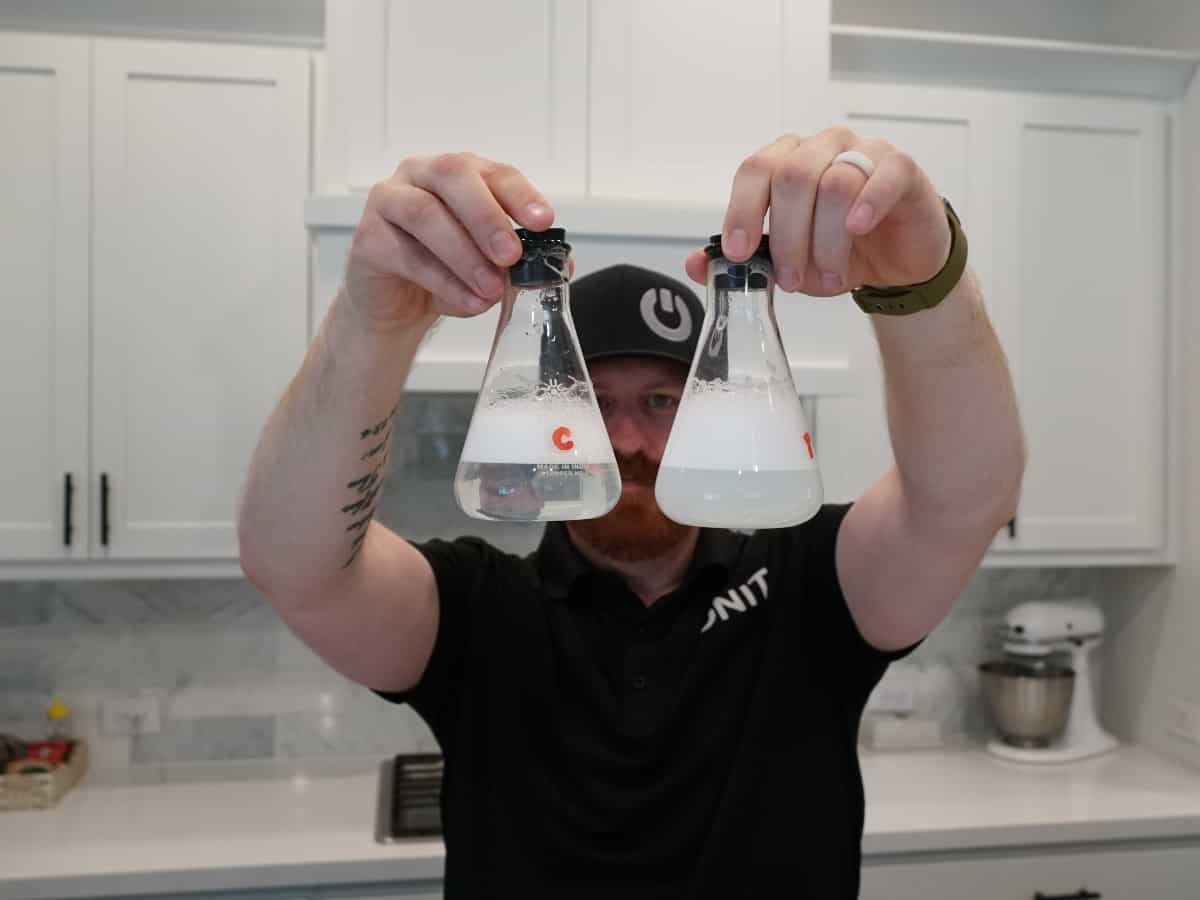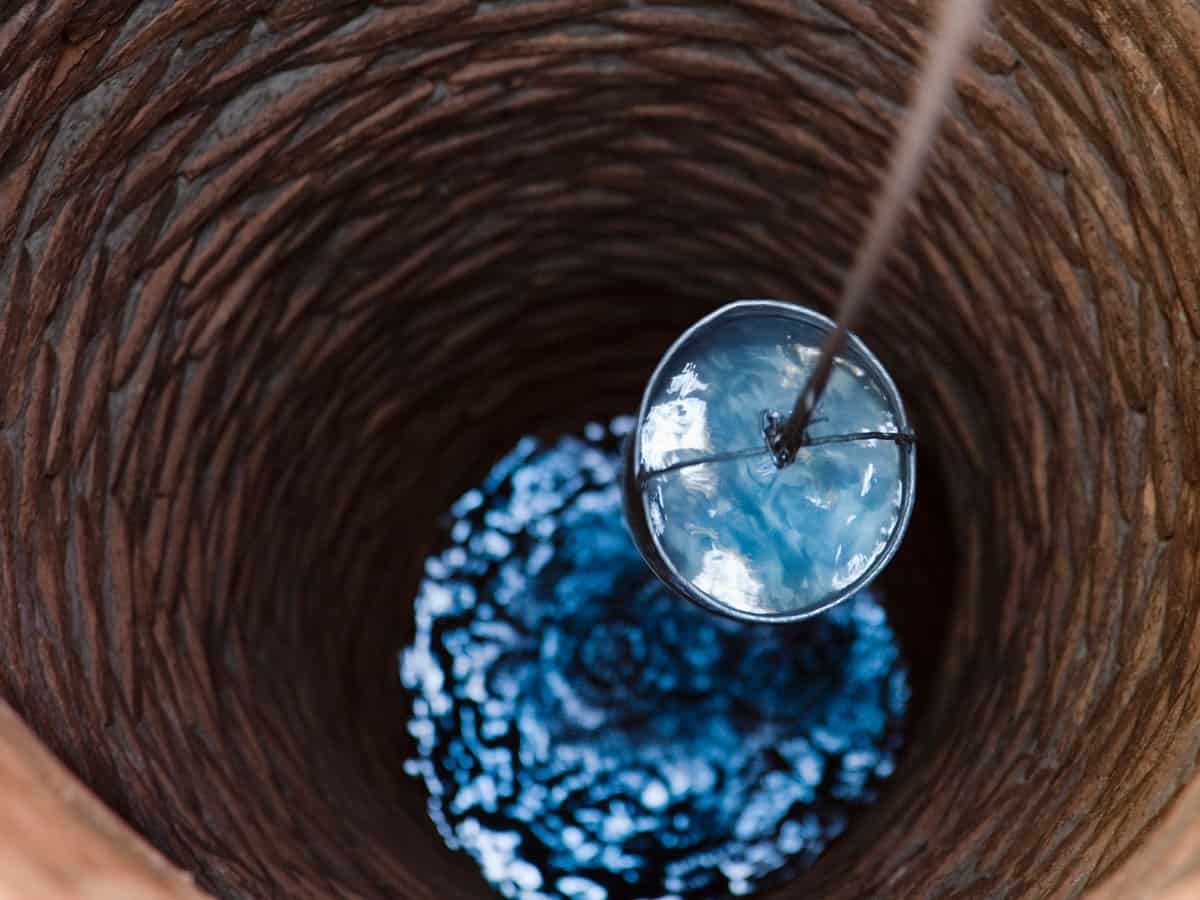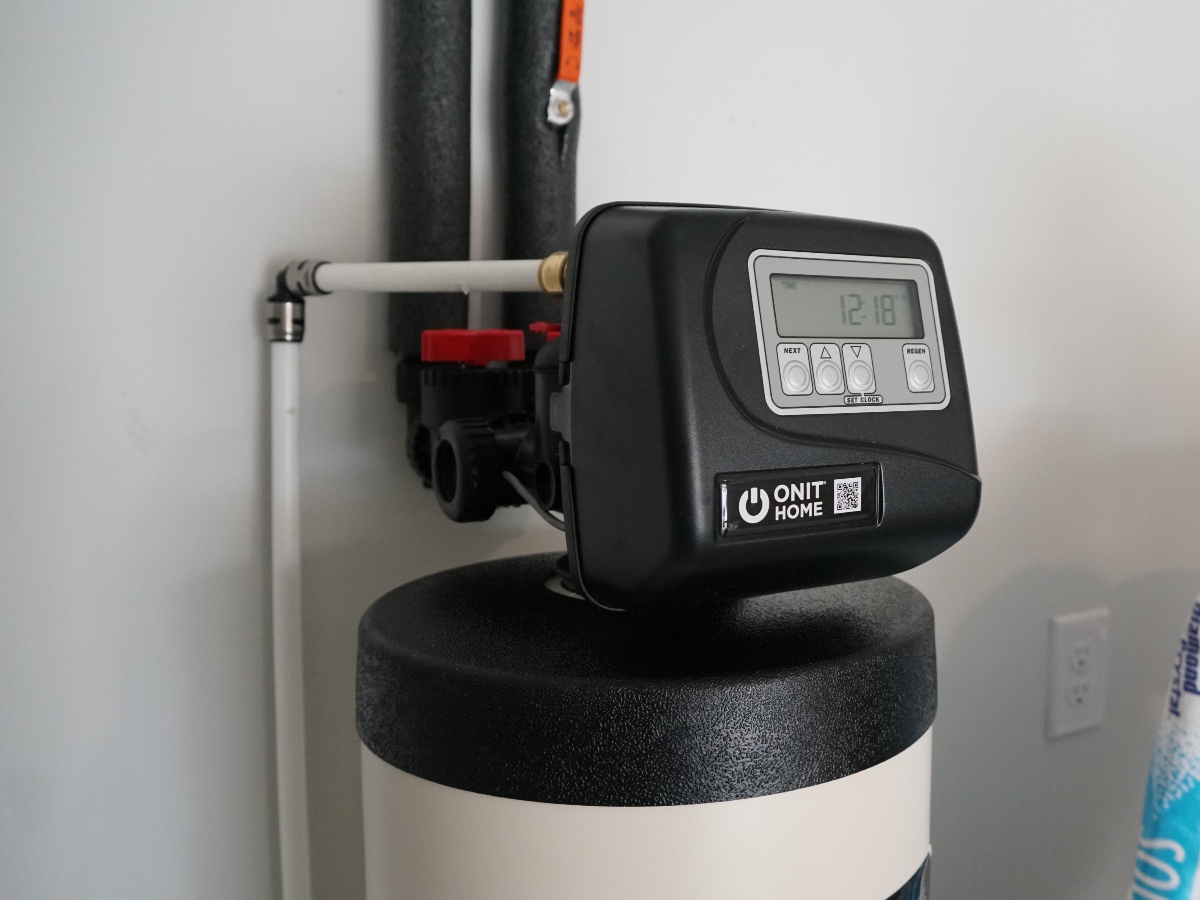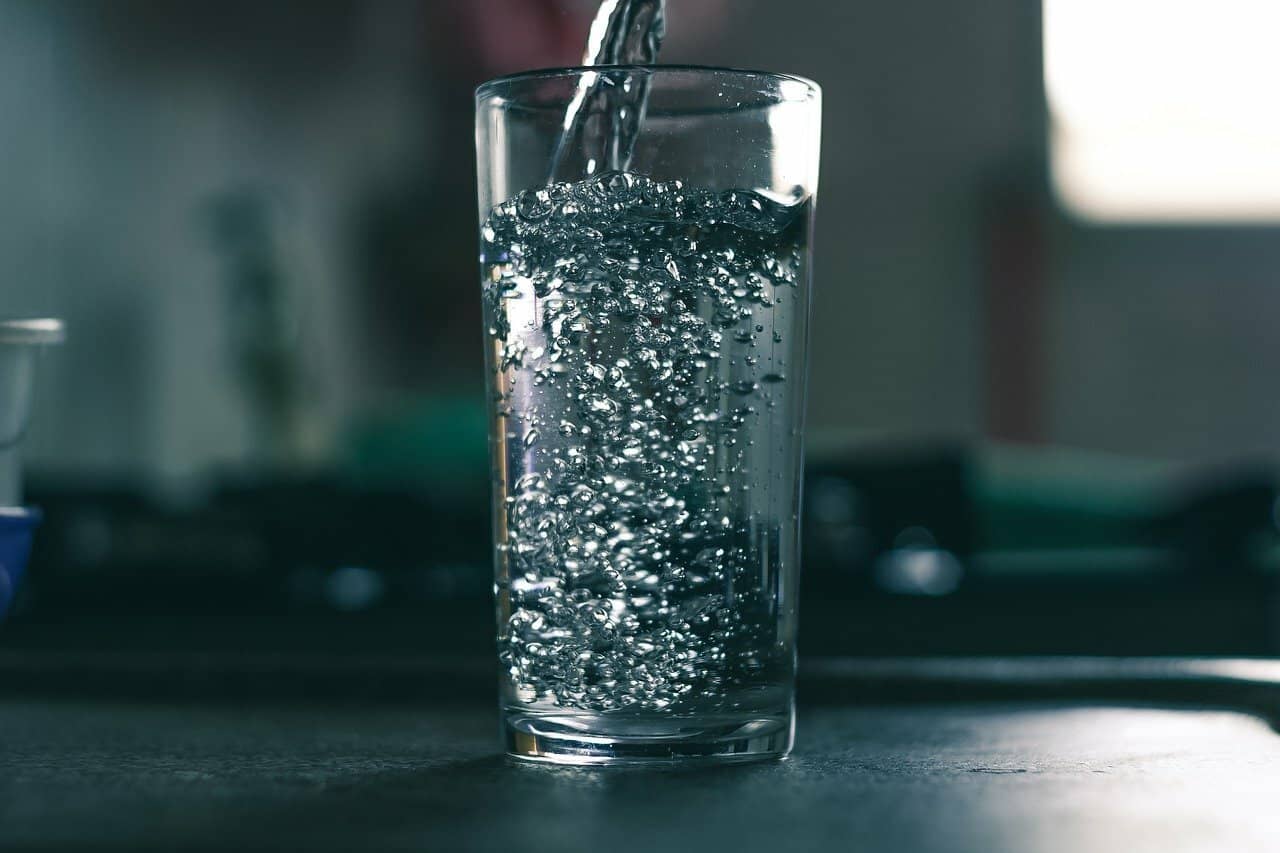Do you know what’s in your drinking water? If you don’t, you’re not alone! Most Americans don’t know what’s in their water. According to the World Health Organization (WHO), 1 in 3 Americans lacks access to clean drinking water. Nitrate is one thing that may be in your water. Nitrates in water can be found in the surface and groundwater.
It’s important to note that nitrates in water are not always harmful to your health if the levels are low. If your water has tested positive for nitrates, don’t fret. There’s a solution. So, keep reading.
What Do Nitrates in Water Test Results Mean?
If your test results show nitrates in your water, it means it’s polluted, so drinking is not safe. High levels of nitrates in water (above 10 mg/L) can cause adverse health effects. Therefore, discontinuing use is best until the problem is identified and solved.
What Are Nitrates?
Nitrate is a nitrogen-oxygen molecule that occurs naturally in the environment and is also human-made. It has one nitrogen and three oxygen atoms. Thus, the formula NO − 3. Nitrates are highly soluble in water, making them common water contaminants. Nitrate is mainly used in nitrogen-based fertilizers and is naturally in food such as vegetables. It’s also used as a preservative in foods like processed meat.
How Do Nitrates Get Into the Water?
Nitrates are typically found in soil and rock. When it rains, water can seep through the ground and dissolve nitrates, which can end up in groundwater. They can also enter the water through agricultural runoffs or sewage. Wastewater treatment plants, malfunctioning septic systems, and corrosion inhibitors from industrial discharges are also common sources of nitrates in water.

Are Nitrates in Water Harmful?
Yes. Nitrates can harm your health. In high enough concentrations, nitrates can cause a blood disorder known as methemoglobinemia, which can be fatal. Methemoglobinemia is a health state where there are high levels of methemoglobin in the blood. This causes little oxygen to be delivered to body tissues.
Methemoglobinemia can quickly develop if you’re pregnant or have an infant less than six months old. Pregnant women can pass methemoglobinemia to the fetus leading to low birth weight. Those with anemia, respiratory problems, cardiovascular disease, genetic conditions, or reduced stomach acidity are at high risk of getting methemoglobinemia.
Methemoglobinemia can cause the skin to turn bluish and can also cause hypotension, headaches, vomiting, nausea, and increased heart rate. In severe cases, the condition can lead to death. In addition, ingestion of high levels of nitrates can lead to gastric cancer.
Since high nitrites levels can indicate sewage contamination, the water may have microbial contaminants. This means drinking the water can lead to waterborne diseases such as diarrhea, cholera, typhoid, and Dysentery. In animals, high levels of nitrates in water leads to decreased levels of dissolved oxygen, which can be toxic to warm-blooded animals.
What Is a Safe Level of Nitrate in Drinking Water?
The EPA (Environmental Protection Agency) has set the maximum contaminant level goal for nitrates in water at 10 mg/L. Nitrates that occur naturally in water are below 1 mg/L, which does not cause health issues to either humans or animals. Human activities are responsible for high levels of nitrates in both surface and groundwater.
How Do You Know if Nitrate Is in Your Water?
Since nitrates are colorless, odorless, and tasteless, it’s hard to tell if it’s in your drinking water. The best way is to conduct a water test to determine if nitrates are present. For those in the public water system, the water is tested regularly to ensure nitrate levels are as per EPA standards. You can contact your water provider for this information. Additionally, you can also read the Consumer Confidence Report (CCR) regarding water quality.
You can still test your tap water and check your nitrates levels. It’s better to err on the side of caution regarding your health. You must regularly test your water for nitrates if you have a private well. This is because wells are highly susceptible to high levels of nitrates since they can easily seep into groundwater through the soil. Unlike public water systems where water is tested for nitrates, you’re solely responsible for regularly testing your well water for nitrates.
There are a few different ways to test for nitrates in your water. You can purchase a nitrate test kit from a hardware store or online or have your water professionally tested. Test kits typically use a chemical reaction to change color if nitrates are present so that the results will be straightforward.
Having your water tested by a professional is better since they can help you identify the problem and help solve it. For example, it could be that your septic system has malfunctioned, and if this is the case, fixing it can help eliminate nitrates from your well water. It’s also crucial to test the nitrates and ammonia levels in your water, which are more toxic than nitrates, especially in aquatic organisms.

When Do You Need to Test Your Well Water for Nitrates?
- When there have been heavy rains in your area.
- If you’ve been having issues with your septic system.
- You have a shallow well.
- If the casing of your well has been damaged.
- Your well is in a sand aquifer.
How Can I Keep My Family Safe From Nitrates in Water?
An excellent way to keep you and your family safe from nitrite in water is by determining the source and eliminating it. There’s not much one can do to prevent natural nitrates from polluting the water. However, since high nitrate levels result from human activities, some measures can help prevent your water from being contaminated. Here is what you can do:
- Ensure there is enough distance between your well and any nitrate source, such as animal waste and septic tanks.
- Test your well water annually.
- Ensure to close your well properly to prevent surface water from entering.
- Inspect your well regularly for damages.
- Choose your well’s spot carefully.
- Ensure the well’s casing is above the ground (at least one foot)
How Can I Remove Nitrates From My Water?
There are several ways that you can remove nitrate from your drinking water. The best is to consult a professional to help you choose a treatment method that suits your home’s water quality. Here are some of the methods.
Reverse Osmosis (RO)
Reverse osmosis is highly effective at removing nitrates. It can also remove contaminants from your water, such as heavy metals, viruses, and bacteria.
The reverse osmosis method passes water through a semipermeable membrane using pressure. The filtered water is then collected on the other side of the membrane. RO membrane is only permeable to water molecules and has about 0.0001-micron pore size. This ensures larger contaminants like nitrates are left behind.
A reverse osmosis system comprises a pre-filter (sediment), a post-filter (activated carbon), storage tanks, and a membrane. RO is a point-of-use system that you fix under sinks.
Ion exchange
An ion exchange unit removes nitrates from water by exchanging them with ions. The ion exchange process passes water through a bed of ion exchange materials, such as beads or resins.
These materials contain ions that are attracted to the nitrates in the water. As the water passes through the bed of ion exchange materials, the nitrates are swapped with the ions in the exchange material. This process removes the nitrates from the water and leaves behind clean, nitrate-free water.
Distillation
Distillation works by boiling water and then condensing the steam back into the water, leaving the contaminants behind. Besides nitrates, this process effectively removes various water contaminants, including bacteria and viruses, arsenic, sodium, sulfate, and many other pollutants.

Whole-Home Water Filtration Systems
A whole-home water filtration system is a great way to get clean, better-tasting filtered water throughout your home. The system is designed to filter all the water that comes into your home, no matter its source. That means you’ll get clean water from your taps, showers, and even the water that goes into your washing machine or dishwasher.
A whole-house water filtration system is an excellent investment for any home, as it’s efficient at removing most contaminants in water. With the system, you can save more money than bottled water or water filter pitchers. It’s important to note that boiling your water will not remove nitrates from your water. It can increase its concentration since nitrates do not evaporate. It’s best to seek guidance from a professional since they can help you determine the best solution for your home.
Enjoy Safe Drinking Water With ONIT Home
Water is essential to our health, but it poses adverse health effects when it becomes contaminated. Levels of nitrates in water above 10 mg/L can cause methemoglobinemia, which, if not treated early, can be fatal. If your water test results show high nitrate levels, reach out to ONIT Home. We can help determine the source of the contaminant and recommend the best system.
At ONIT Home, we have different water filters to choose from, so you can find the perfect one for your needs. Our home water filtration system removes 99% of contaminants, including nitrates, copper, mercury, bacteria, forever chemicals, and others. We also offer free water tests and advice. We have your back whether you’re looking for a faucet or a whole-house filter. Our installation services are affordable. Plus, you’ll have peace of mind knowing your whole family is protected.
Need safe drinking water? We’re ONIT! Get a free quote today or call us at 1-833-433-0331 to speak to our representatives.



